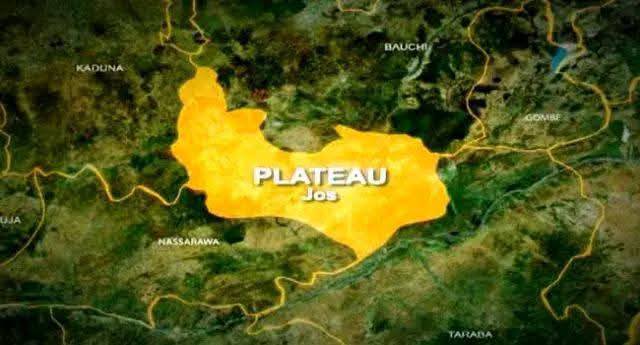Farmer Beheaded in Plateau Community: Ishaku Abalis Killed in Brutal Attack Amid Escalating Herder-Farmer Tensions
A quiet morning on his farmland turned into a scene of unimaginable horror for a 40-year-old Nigerian farmer, as assailants severed his head in broad daylight. This shocking act of violence has reignited fears in Plateau State, where longstanding land disputes claim lives with ruthless efficiency.
In a grim escalation of herder-farmer conflicts in Nigeria, Ishaku Abalis was beheaded by suspected Fulani militia on September 29, 2025, while tending his crops in Panyam District, Mangu Local Government Area of Plateau State. As farmer beheaded Plateau incidents surge amid 2025’s intensifying communal clashes, community leaders decry the lack of security, with calls for federal intervention growing louder to prevent further bloodshed in this volatile Middle Belt region.
The Attack: A Defiant Stand Ends in Tragedy
Ishaku Abalis, a dedicated farmer from the Mwaghavul ethnic group, was working alone on his plot when confronted by armed men suspected to be Fulani herdsmen. Reports indicate the assailants demanded he surrender his produce to allow their cattle to graze freely on the land. When Abalis refused, the confrontation turned deadly: He was hacked to death, his head severed, and his body left mutilated on the farm.
The incident occurred around midday in a remote area of Panyam, a hotspot for such disputes due to overlapping farming and grazing routes. Eyewitnesses, too terrified to intervene, alerted authorities hours later. By evening, Abalis’s remains were recovered and buried swiftly per local customs, as his family mourned the loss of their breadwinner.
Verified details from the Plateau State Police Command confirm the attack but note no arrests yet, with investigations ongoing. This fits a pattern: Similar beheadings have plagued the region, from Benue’s Gabriel Vandefan in July to Ebonyi’s Godwin Odah in February, where victims were targeted for resisting encroachments.
Community Outrage: Voices Demanding Justice and Protection
The killing has sparked fury among Mangu residents, who view it as a deliberate terror tactic to displace indigenous farmers. Jerry Dabit, National President of the Mwaghavul Development Association, condemned the act as “not just an attack, but a calculated effort to instill fear and break our resilience.” In a press briefing in Jos, he urged immediate security deployments, warning that “our communities are under siege, and we can no longer remain silent while our people are butchered.”
Public reactions echo this anguish. On X, posts from locals like @MwaghavulVoice trended with #JusticeForIshaku, one viral thread reading: “Another farmer gone for defending his land. Where is the government? Plateau bleeds!” garnering over 2,000 retweets in hours. Broader sentiment on the platform shows frustration with federal responses, with users sharing photos of Abalis’s farm—now a bloodied testament to neglect.
Experts from Amnesty International highlight the systemic failure: “These attacks exploit security lapses, turning resource disputes into ethnic vendettas,” says a recent report on Middle Belt violence. Local vigilantes, often outgunned, have formed ad-hoc patrols, but Dabit stresses the need for professional forces to avoid reprisals.
Roots of the Conflict: Land, Livestock, and Lingering Divisions
Plateau State’s herder-farmer clashes trace back decades, rooted in competition for shrinking arable land amid climate change and population growth. Nomadic Fulani herders, mostly Muslim, seek grazing routes southward, clashing with sedentary Christian farmers like the Mwaghavul over crop destruction by cattle. What starts as disputes escalates into raids, with over 1,300 deaths since 2018, per Crisis Group data.
In 2025 alone, the region has seen spikes: April attacks in Benue and Plateau killed over 100, displacing thousands. Economic drivers compound it—farmers lose harvests worth millions, herders face cattle rustling losses—while weak policing fuels impunity. Wikipedia notes the conflict’s ethnic tint, though analysts like Adam Higazi argue it’s primarily resource-based, worsened by influxes of armed migrants.
Government efforts, like President Tinubu’s 2024 livestock reform push, aim at ranching zones, but implementation lags, leaving communities vulnerable.
Impacts on Plateau Lives: From Fields to Fear
For U.S. readers with ties to Nigeria—through remittances or diaspora networks—this tragedy underscores the human cost of instability in Africa’s powerhouse. Economically, it cripples food security: Plateau’s fertile plateaus feed millions, but attacks have halved yields, driving up national grain prices by 15% this year and straining imports.
Lifestyle-wise, farmers like Abalis’s neighbors now harvest under armed watch, kids skip school for safety, and markets empty as fear spreads. Politically, it bolsters calls for state police, with Governor Caleb Mutfwang vowing reinforcements, though critics say it’s reactive. Tech plays a role too—community WhatsApp groups alert on herder sightings, while drone surveillance pilots test boundaries.
Sports echoes the pain: Local football leagues pause amid grief, mirroring how violence disrupts youth programs in affected areas. Users searching “farmer beheaded Plateau 2025” seek survivor stories and aid links; authorities manage via hotlines for tips, aligning with intents for justice and support.
A Cycle of Violence: Calls for Broader Solutions
Zooming out, this beheading joins a macabre tally—56 killed in Benue last April, 51 in Plateau the prior week—highlighting the Middle Belt’s “forgotten war.” Herder groups like Miyetti Allah deny involvement, blaming banditry, but residents point to patterns of targeted mutilations.
In sum, Ishaku Abalis’s beheading exposes the raw underbelly of Plateau’s herder-farmer conflicts, a vicious cycle claiming lives amid stalled reforms. Looking ahead, sustained security, equitable land policies, and dialogue could stem the tide by 2026, fostering peace in communities long scarred—but without urgent action, more fields will run red.
By Sam Michael
October 1, 2025
Follow us on social media for real-time updates, and subscribe to our newsletter today for push notifications on breaking international conflict news—stay ahead of the curve!
